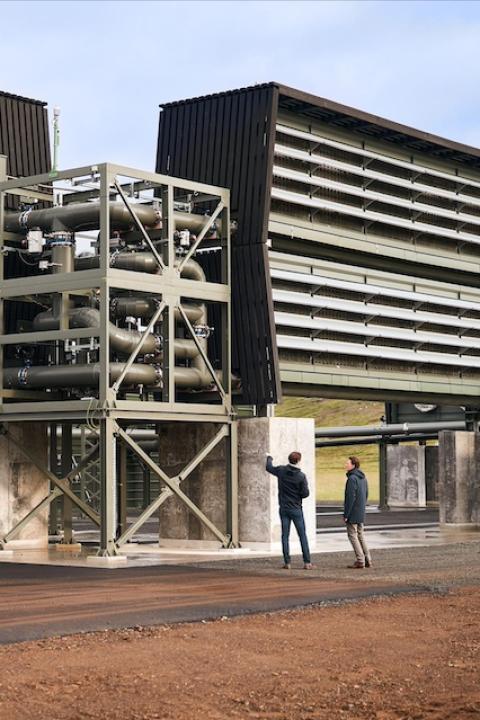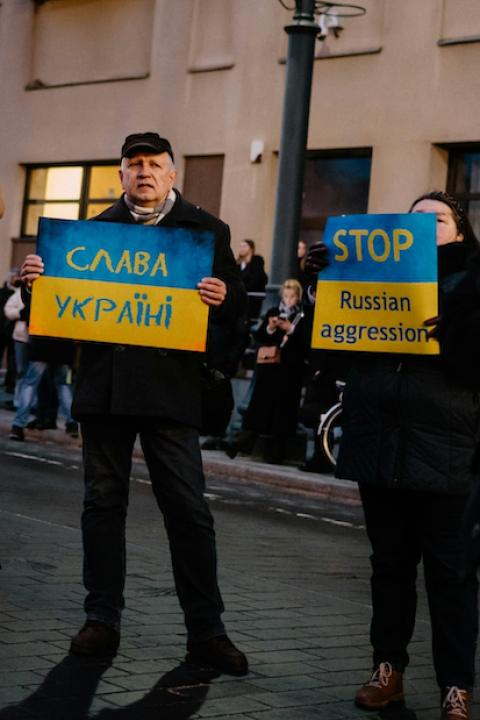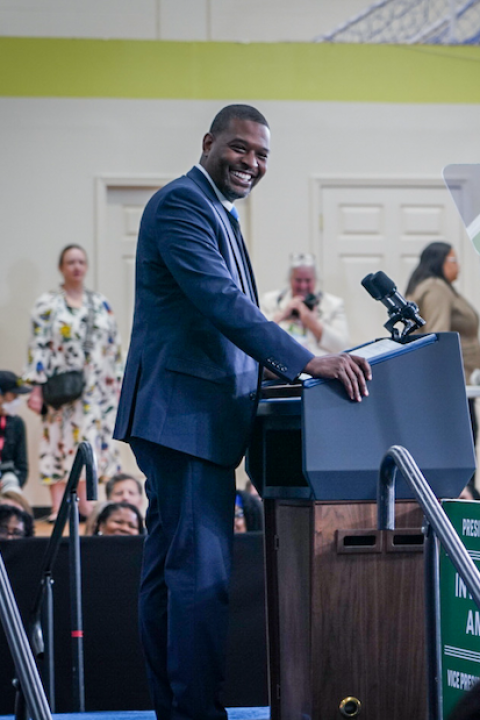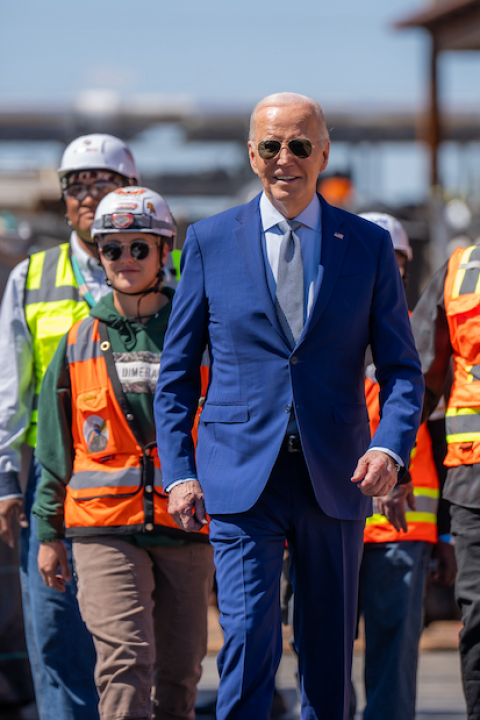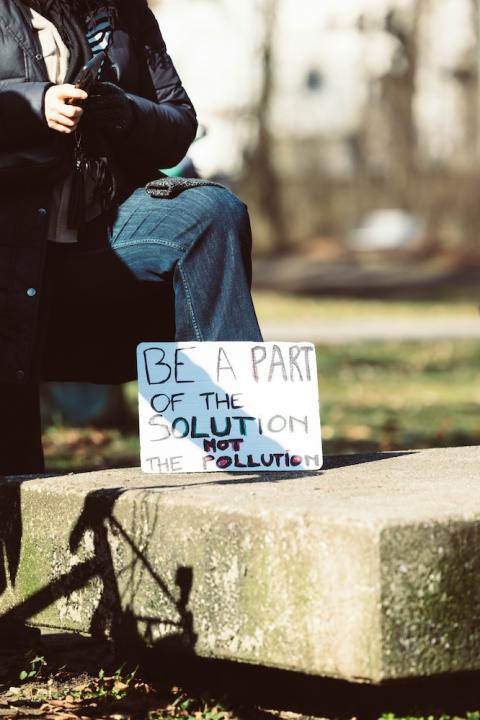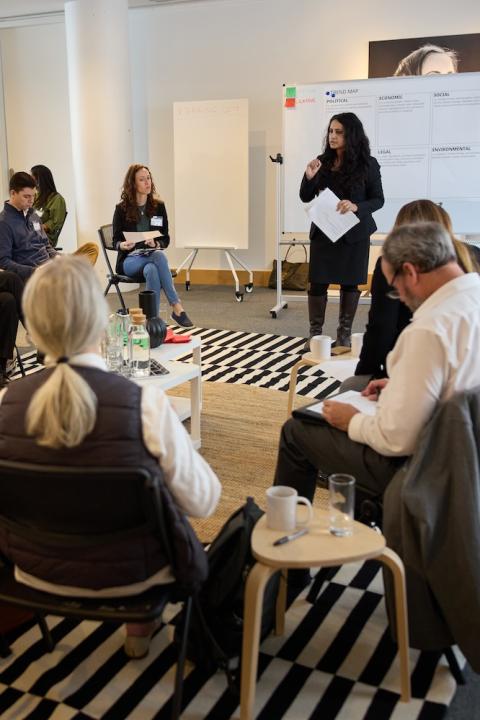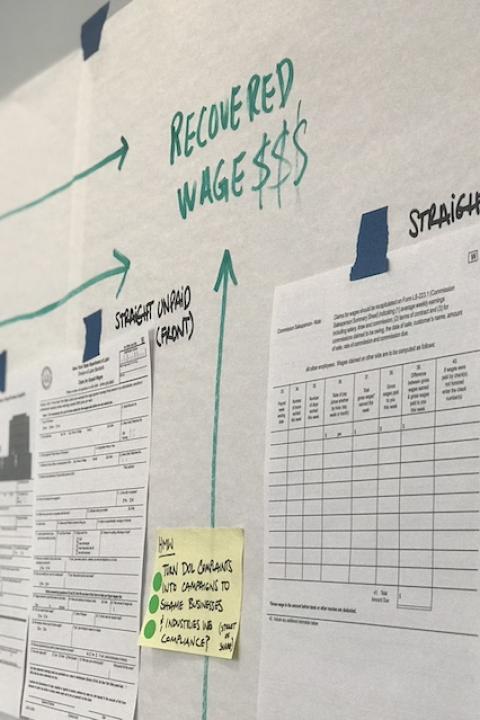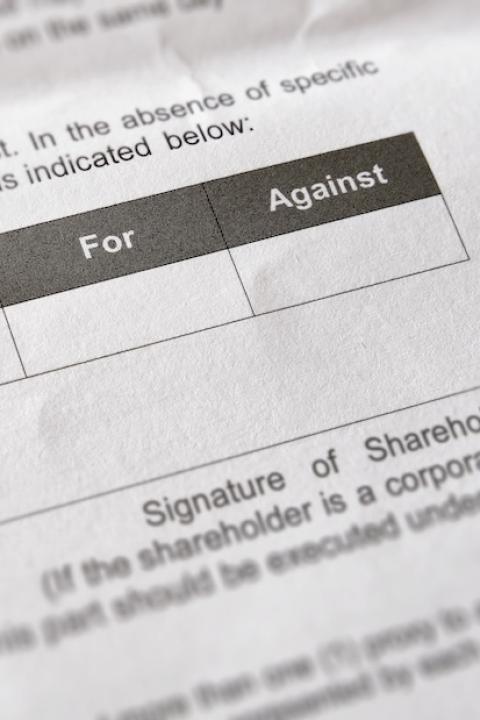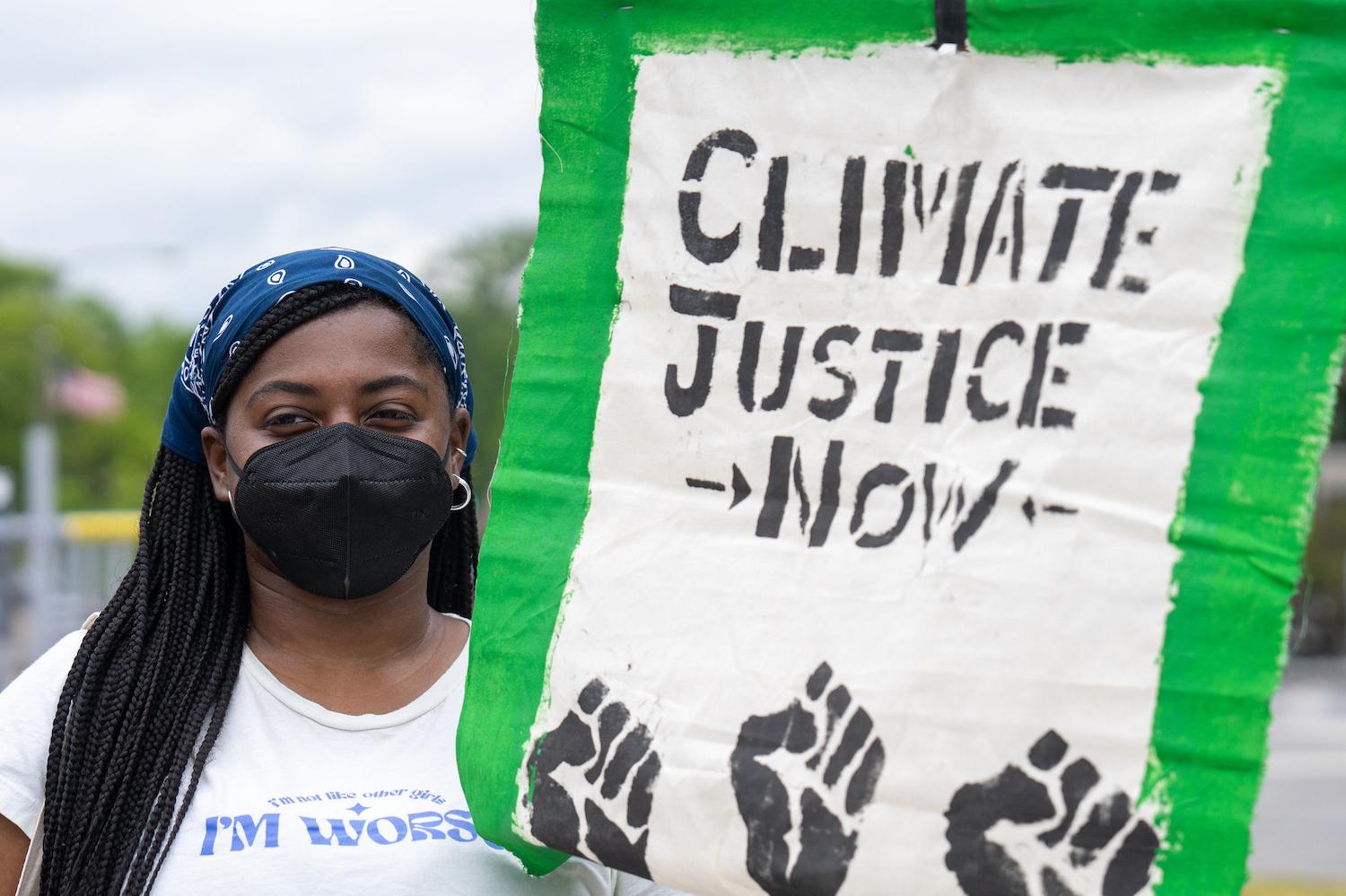
A demonstrator shows support for climate justice at an Earth Day rally in Washington, D.C. earlier this year.
Early next month, representatives from more than 500 banks from around the world will gather to explore how to promote sustainable development and “align financial flows” with the Paris Agreement on Climate Change. Participants in the upcoming Finance in Common Summit account for 12 percent of global investment annually with $23 trillion in assets combined, allowing for enormous potential impact.
Not surprisingly, financing energy transitions will be central to the discussions, including Just Energy Transition Partnerships (JETPs), or creative financing packages to support developing countries’ transitions away from coal. Four JETPs have been announced so far with South Africa, Indonesia, Vietnam and Senegal. India is next in line. G7 countries and development banks are instrumental to financing these initiatives.
But like anything that requires a massive infrastructure shift, transparency and accountability are essential to ensure that the billions of allocated dollars are actually used for their intended purpose. In the case of the JETPs, this means moving toward renewable energy to benefit all communities. Such transparency and accountability is only possible where local NGOs and civil society experts can participate freely and fully in public discussions, provide independent monitoring of social and environmental impacts, and support communities to advocate for their rights.
This is what the “just” aspect of the just transition is all about — which is why financial institutions should be paying very close attention to the situation of civil society voices in the countries they are prioritizing.
Take Vietnam as an example.
Two development banks — the International Finance Corp. and the Asian Development Bank — joined forces with the U.S., U.K. and other G7 nations to finance a $15.5 billion JETP with Vietnam. Meanwhile, in the last couple of years, the Vietnamese government has arrested and detained five of the country’s most prominent climate leaders who should be at the forefront of this process. The charges all relate to “tax evasion,” but ample evidence, including multiple declarations from U.N. experts and treaty bodies, point to these vague laws being used to silence environmental defenders in Vietnam.
One of the climate justice heroes currently serving a five-year prison sentence in Vietnam is Mr. Dang Dinh Bach (“Bach”), whom I know personally both as a former student and as a partner in a U.S.-funded law reform project. His work centered around protecting vulnerable communities from pollution, including plastic waste, asbestos and coal-fired power plants. I was impressed with his strong sense of values, always respecting the Vietnamese legal system and speaking highly of the government. He’s still in jail despite numerous high-level calls for his release and a U.N. opinion that found his imprisonment a “violation of international law” in the context of a “systemic problem with arbitrary detention” of environmental defenders in Vietnam.
Just a few months ago, another climate champion in Vietnam, Obama Foundation Scholar Hoang Thi Minh Hong, was detained on similar charges, continuing this highly concerning trend. The U.N. and several governments, including the U.S. and the U.K., have all released statements calling for her release, but to no avail.
Internationally-renowned climate leader and Goldman Environmental Prize Winner Ms. Nguy Thi Khanh was recently released after serving 16 months in prison on similar tax-evasion charges. Environmental groups continue to face threats, and many have shut down in reaction to this chilling situation.
For all banks that will be participating in the upcoming Finance in Common Summit, these arrests should be a red flag. Even more so for the International Finance Corp. and the Asian Development Bank, as they have recognized the link between dissent and sustainable financing, having adopted specific policies protecting those who voice opinions about the projects they fund.
The World Bank, of which the International Finance Corp. is a part, has a zero-tolerance policy around reprisals and retaliation against those who openly share their views about projects it funds, stating: “Any form of intimidation against people who comment on Bank projects, research, activities and their impact, goes against our core values of respecting the people we work for and acting with utmost integrity." The Asian Development Bank's policy similarly says that civil society participation in its projects “fundamentally supports good governance, citizenship and accountability of the state.”
Both development banks must know that funding a JETP in Vietnam while the government is punishing those who argued for this precise transition violates the spirit of their policies and undermines the ultimate effectiveness of their JETP investments.
Banks should not be supporting JETPs in any country where advocating for clean energy is treated as a crime under the guise of tax fraud. If Bach, Hoang and Khanh can be arrested for taking reasoned positions against coal-fired power plants or other projects that exacerbate climate change, then anybody is at risk of being arbitrarily imprisoned in Vietnam for supporting the goals of the JETP in the future. Each of these individuals worked within the system and was eager to help monitor and implement the JETP on behalf of impacted communities.
To achieve a truly just energy transition in Vietnam, financing of the JETP must be contingent upon the urgent release of Bach, Hoang, and the other environmental defenders serving harsh and unjust sentences. In addition, civil society must be able to safely and freely contribute to the work needed for Vietnam to meet its net-zero emission target by 2050 and the JETP commitments without retaliation or threat of imprisonment. The same should be true for all countries receiving billions of dollars to meet the Paris Agreement goals.
At this year’s Finance in Common Summit, I urge the participating banks that finance JETPs or any other type of climate-forward initiatives to do their due diligence and make sure their money will actually be used to fund truly just energy transitions.
Image credits: Victoria Pickering/Flickr and Markus Spiske/Unsplash

David Hunter is Professor of international and comparative environmental law at American University's Washington College of Law. He currently serves on the Boards of Directors of Accountability Counsel, the Environmental Law Alliance Worldwide-US, and the Project on Government Oversight. He is a Member Scholar of the Center for Progressive Reform and a member of the Organization of American States’ Expert Group on Environmental Law, the InterAmerican Network for Environmental Law’s Advisory Board, and the Strategic Advisors Group for the International Finance Corporation’s Compliance Advisor/Ombudsman. He is co-author of International Environmental Law & Policy (5th ed.) and Climate Change Law (2nd ed.). His research interests include human rights and the environment, environmental standards and accountability mechanisms in international finance, and climate change litigation, law and policy.



